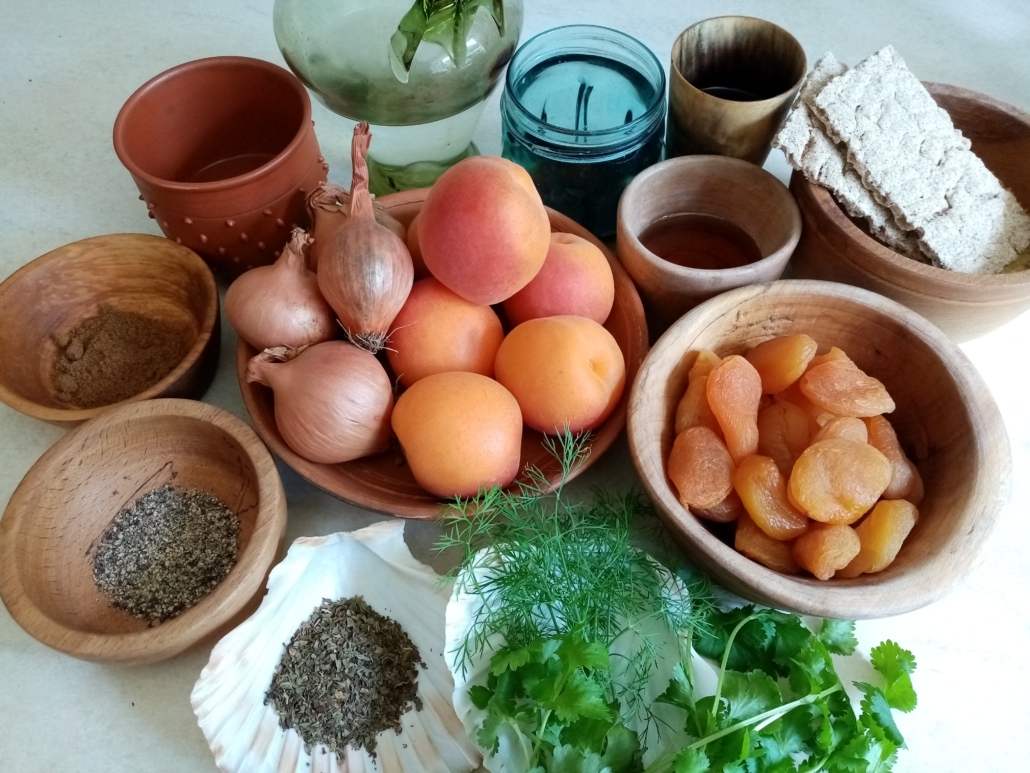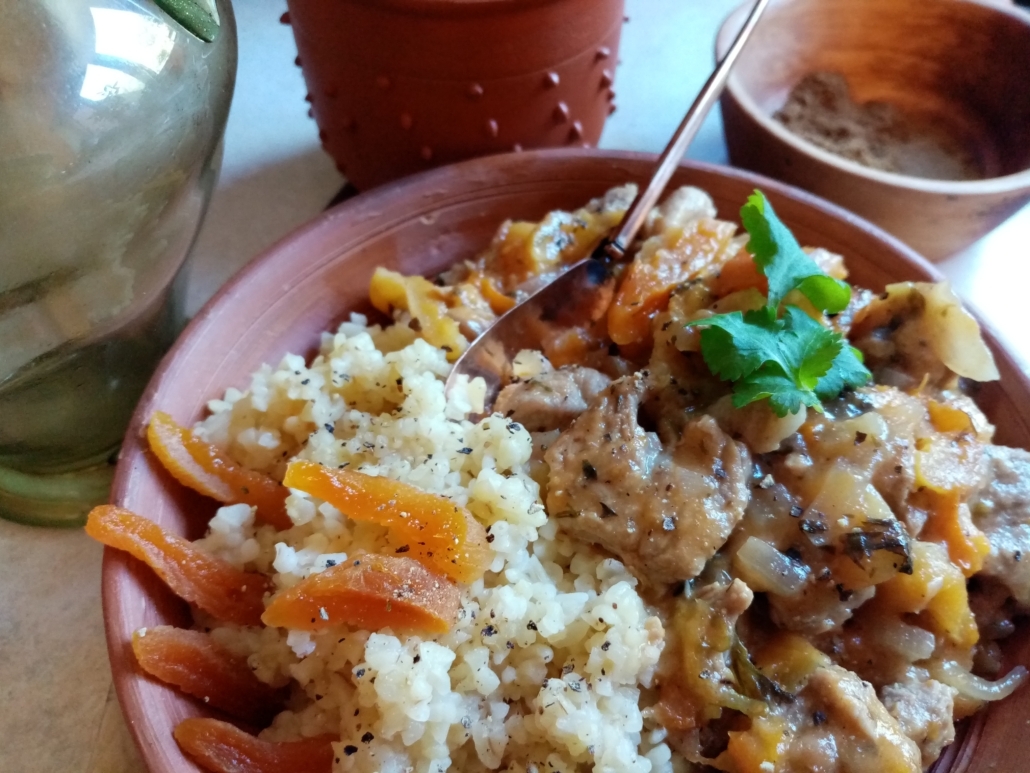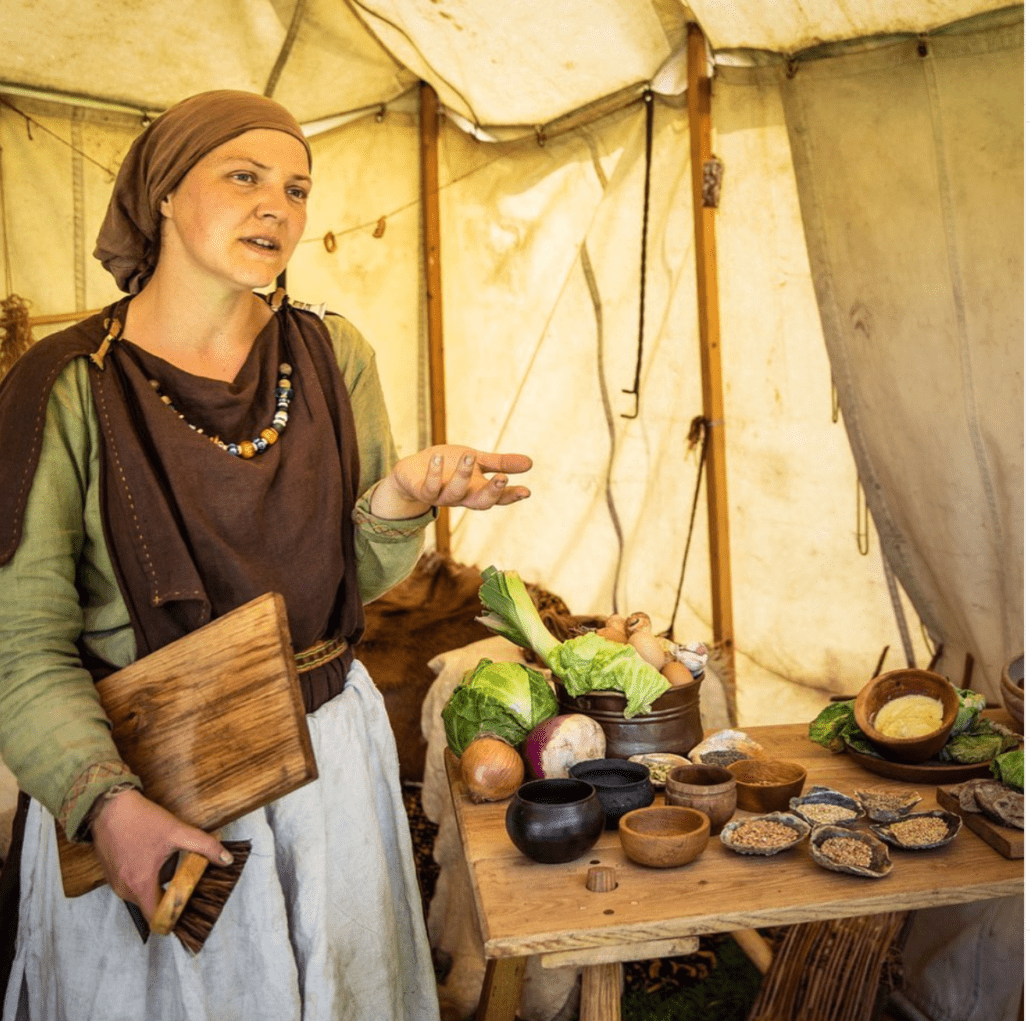Historical Recipes: Minutal Ex Praecoquis
This week’s historical recipe is Roman!
‘Minutal ex Praecoquis’, is a tagine-like dish, with very North African flavours. Brought to you by Caroline Nicolay, archaeology educator & Iron Age specialist at Pario Gallico.
Don’t be frightened by the length of this list!
It’s not at all as complex as it might seem, you probably have half of these in your kitchen already, and you can do with less herbs / ingredients.
– you can choose fresh OR dried apricots instead of both
– dill and mint are less important than coriander. If you dislike coriander, use mint.
Ingredients (for 4 people (or 2 big eaters):
800g pork* shoulder, diced
* (Replace with diced lamb meat or chicken, vegan / vegetarian chicken – shredded or pieces- or grilled tofu / slices of halloumi. For vegetables only, use cubed turnips, onions, marrow)
4-5 shallots, chopped
3 tbsp fresh coriander, chopped
Olive oil
4 or more tbsp ‘’garum’’ = Fish sauce / Thai fish sauce / Nam Pla
200ml white wine (a ‘’fruity’’ wine works well)
2-3 tbsp honey
2 tbsp wine vinegar (white ideally, but red works. Can be replaced by cider vinegar)
½ tsp black pepper, crushed, plus some for serving
½ tsp cumin powder
1 tsp dry mint
8 or more sprigs of fresh dill (or 1tsp dry)
6 fresh apricots, pitted
150gr dried apricots (adjust sweetness to taste by using more or less dried apricots)
Optional:
‘’Tracta’’= 2 ‘’Ryevita-style’’ crackers OR 2 Tbsp wheat flour, ideally wholemeal / brown
Salt
Side dish: (You can choose your favourite option, I used bulgur wheat)
200gr bulgur wheat (pre-cooked, cracked wheat. Very close to wheat groats, but cooks quicker) + 800ml water / broth
OR pearl barley (more accurate)
OR couscous (very quick and easy)
Method:
– Boil the cubed pork in a pan of water, a dash of salt and a few herbs of your choice (a bay leaf for example) for about 10-15 minutes (It doesn’t need to be fully cooked as it will cook again with the other ingredients). Drain and keep the cooking liquid / stock aside.
– In another pan, brown the chopped shallots in olive oil. Add the rest of the ingredients: wine, fish sauce, chopped coriander, herbs, spices, chopped apricots, vinegar, cooked meat, etc.
Add about a cup / ¼ pint of the pork stock you made, and leave to simmer on low heat for 15-20 minutes, making sure there is enough liquid for the meat to remain tender and the apricots to turn into a pulp.
– In the meantime you can use the pork stock to boil a side dish of pearl barley, bulgur wheat, couscous that will already be flavoured!
– Taste the pork stew, adjust if needed with fish sauce, honey, pork stock, vinegar. If you chose to use some, break the Ryvita-style biscuit in the simmering stew, or breadcrumbs or wholemeal flour (1 tbsp), stir and leave to thicken for a minute or two.
– Serve hot with the side dish and maybe a lettuce, cucumber or cooked green leaves (spring green for example). Enjoy!
Archaeology educator and Iron Age specialist, living historian and experimental archaeologist, Caroline Nicolay, Director at Pario Gallico. Caroline will be back at the festival this year demonstrating Iron Age cookery and how to make ancient paints, among other things.
Instagram: @ParioGallico
Twitter: @pariogallico





